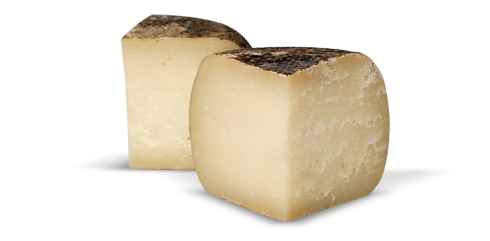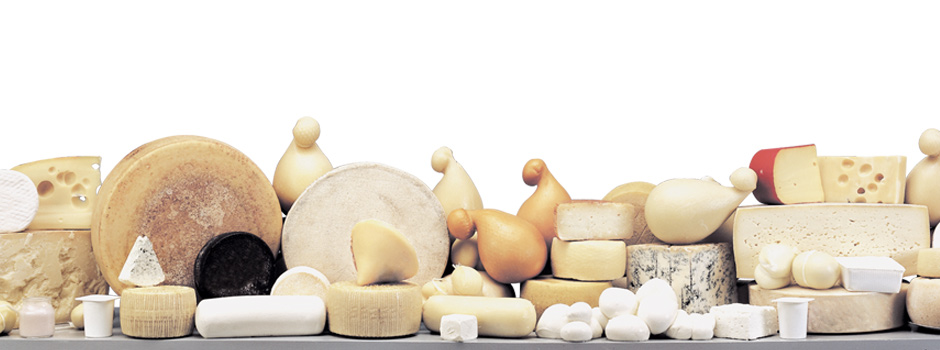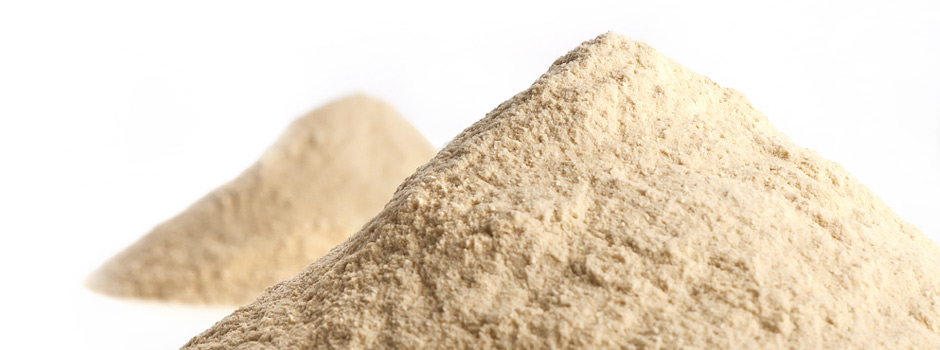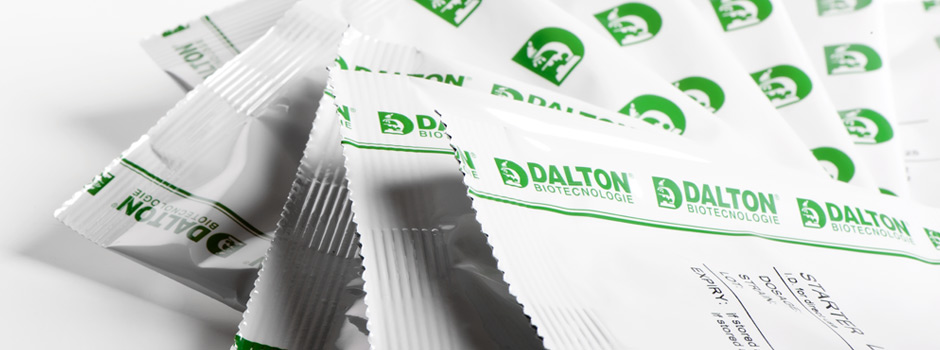Our Moulds
Dalton can provide moulds for surface-ripening and blue cheeses. Thanks to their unique properties, our moulds allow for a total customization of the cheese, both as far as regards its distinctive appearance as well as with regard to the proteolytic and lipolytic activities which influence or generate aroma and flavour.
Some of our moulds and mould formulations can enhance biological antagonistic activities to block development of harmful microorganisms.
| Cultures | Characteristics |
|---|---|
Penicillium candidum FR |
|
Penicillium candidum CL |
|
Penicillium roqueforti M |
|
Our Protective Cultures
Dalton’s protective cultures can successfully block development of mould and yeast on the surface of cheese and yoghurt.
| Cultures | Composition |
|---|---|
LR |
|
LP |
|
Penicillium candidum LO |
|
Geotrichum candidum T |
|
Geotrichum candidum D |
|
Penicillium roqueforti |
|
Our Propionic Cultures
Dalton’s propionic cultures can ensure the formation of medium and large holes in Emmental and Dutch type cheeses.
| Cultures | Properties |
|---|---|
DPr 02 |
cultures for development of medium-sized holes |
DPr 03 |
cultures for development of holes in Emmental cheese type |
 Special formulations are provided to the customer's request
Special formulations are provided to the customer's request
Our autochthonous Starter Cultures
The typicalness of PDO “Protected Designation of Origin” and traditional cheeses can be influenced not only by the properties of the milk and the production technology involved, but also by the microbial starter cultures traditionally used in the making of these types of cheese.
Dalton Biotecnologie can isolate and select these autochthonous strains obtained by traditional bulk cultures from milk or whey, then we can purify and reproduce them to make them safe and stable.
(for further info, please check our Customer Support and Customized Formulations sections)



